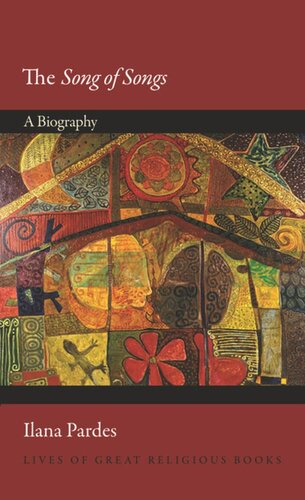

Most ebook files are in PDF format, so you can easily read them using various software such as Foxit Reader or directly on the Google Chrome browser.
Some ebook files are released by publishers in other formats such as .awz, .mobi, .epub, .fb2, etc. You may need to install specific software to read these formats on mobile/PC, such as Calibre.
Please read the tutorial at this link: https://ebookbell.com/faq
We offer FREE conversion to the popular formats you request; however, this may take some time. Therefore, right after payment, please email us, and we will try to provide the service as quickly as possible.
For some exceptional file formats or broken links (if any), please refrain from opening any disputes. Instead, email us first, and we will try to assist within a maximum of 6 hours.
EbookBell Team

4.8
64 reviewsThis book takes the reader on a tour of popular understandings throughout history of the most erotic part of the Bible: the love poem known as the Song of Songs (AKA the Song of Solomon).
An essential biography of the greatest love poem ever written
The Song of Songs has been embraced for centuries as the ultimate song of love. But the kind of love readers have found in this ancient poem is strikingly varied. Ilana Pardes invites us to explore the dramatic shift from readings of the Song as a poem on divine love to celebrations of its exuberant account of human love. With a refreshingly nuanced approach, she reveals how allegorical and literal interpretive lines are inextricably intertwined in the Song's tumultuous life. The body in all its aspects—pleasure and pain, even erotic fervor—is key to many allegorical commentaries. And although the literal, sensual Song thrives in modernity, allegory has not disappeared. New modes of allegory have emerged in modern settings, from the literary and the scholarly to the communal.
Offering rare insights into the story of this remarkable poem, Pardes traces a variegated line of passionate readers. She looks at Jewish and Christian interpreters of late antiquity who were engaged in disputes over the Song's allegorical meaning, at medieval Hebrew poets who introduced it into the opulent world of courtly banquets, and at kabbalists who used it as a springboard to the celestial spheres. She shows how feminist critics have marveled at the Song's egalitarian representation of courtship, and how it became a song of America for Walt Whitman, Herman Melville, and Toni Morrison. Throughout these explorations of the Song's reception, Pardes highlights the unparalleled beauty of its audacious language of love.